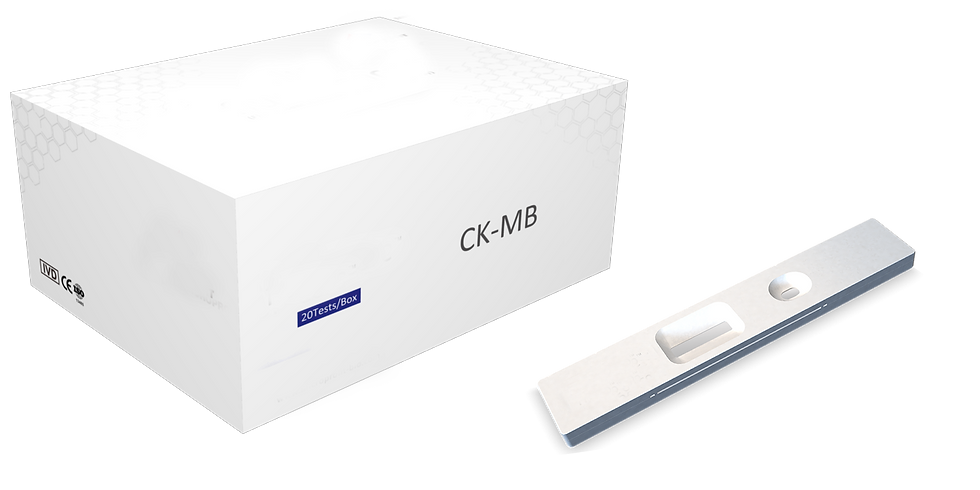SINOVA-M-14039 Creatine Kinase-MB Isoenzyme (CK-MB) Quantitative Test Kit
Clinical Significance:
Diagnosis of AMI: Studies have shown that the clinical sensitivity and specificity of CK-MB mass for diagnosing AMI are 96.8% and 89.6%, respectively, when sampled 12-48 hours after symptom onset. This makes CK-MB an important marker for the clinical diagnosis of AMI. Combining CK-MB with other cardiac-specific markers like cTnI and Myo can improve diagnostic accuracy.
Prognosis of Unstable Angina (UA): UA can develop into AMI or sudden death. Traditional enzymatic indicators and ECG often fail to detect or show characteristic changes in patients with subacute myocardial infarction and small focal myocardial infarction, making it difficult for clinicians to prospectively observe and take appropriate measures. Quantitative detection of serum CK-MB can help clinicians judge the prognosis of UA patients and choose the best treatment plan for optimal outcomes.
Risk Stratification of Ischemic Myocardial Injury: CK-MB levels can be used to stratify the risk in patients with ischemic myocardial injury.
Product Specifications: 20 tests/box
Product Shelf Life: 18 months when sealed in an aluminum foil pouch. Use within 1 hour after opening the pouch.
Product Storage: Store the test card at 2℃-30℃.
Usage Scenarios:
- Emergency Departments: For diagnosing Acute Myocardial Infarction (AMI) and providing rapid treatment to patients presenting with chest pain.
- Cardiology Departments: For monitoring CK-MB levels to assess myocardial injury, stratify risk, and evaluate the prognosis of unstable angina (UA).
- Hospitals and Clinics: For comprehensive cardiac care, including the diagnosis of AMI, monitoring of ischemic myocardial injury, and evaluating the risk of disease progression in UA patients.
- Diagnostic Laboratories: For routine testing of CK-MB levels as part of cardiac health assessments and diagnostic panels.
Suitable Countries and Regions:
- Developed Countries: United States, Canada, Western Europe (e.g., Germany, France, UK), Japan, Australia, etc., where advanced cardiac diagnostic tools are widely used for improving patient outcomes.
- Emerging Markets: China, India, Southeast Asia, Latin America, Eastern Europe, Middle East, etc., where healthcare systems are expanding diagnostic capabilities for cardiac conditions and improving access to modern diagnostic tools.
- Global Health Programs: International health initiatives focused on enhancing cardiac care and improving diagnostic accuracy for myocardial injuries in low-resource settings.

